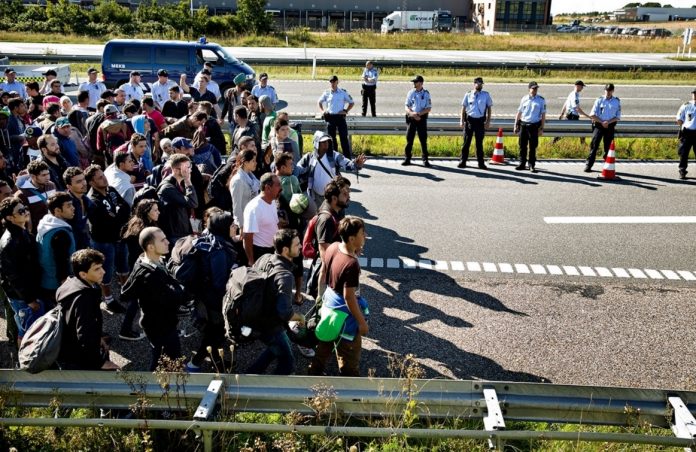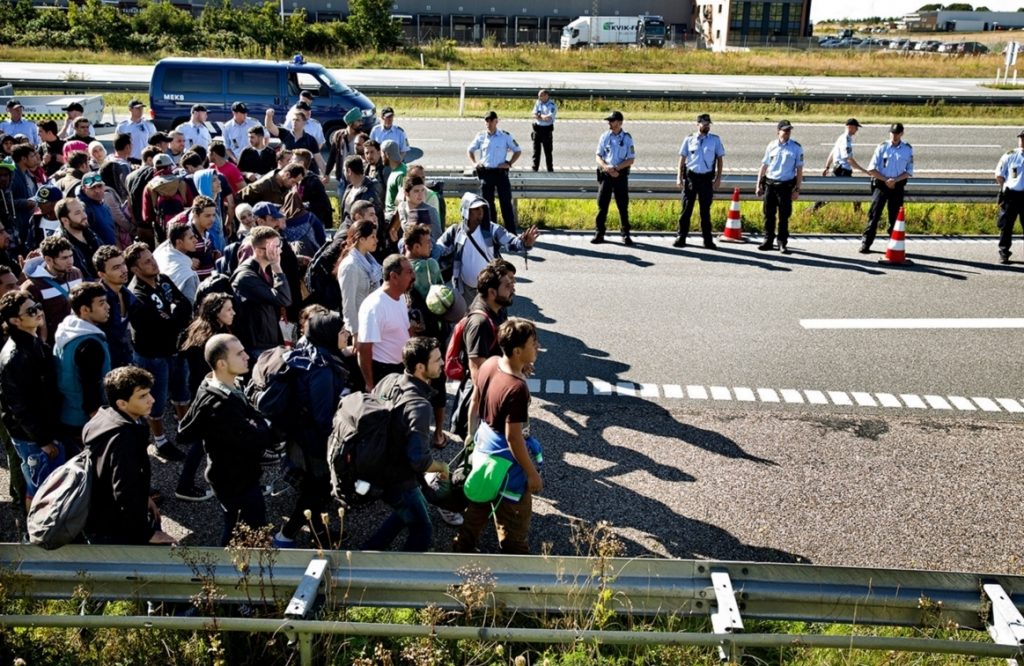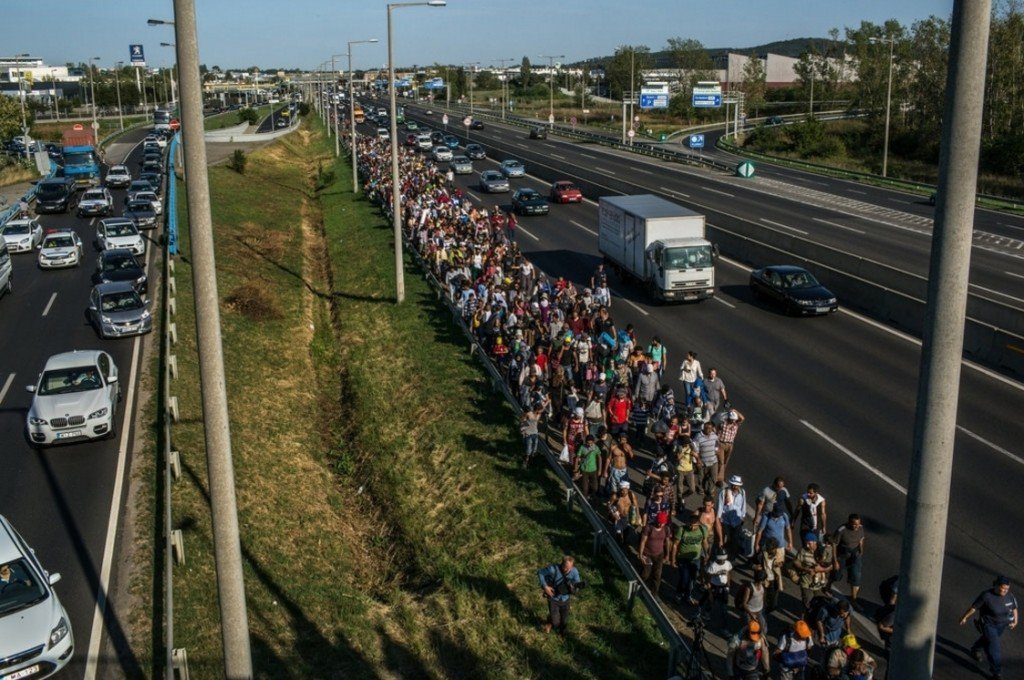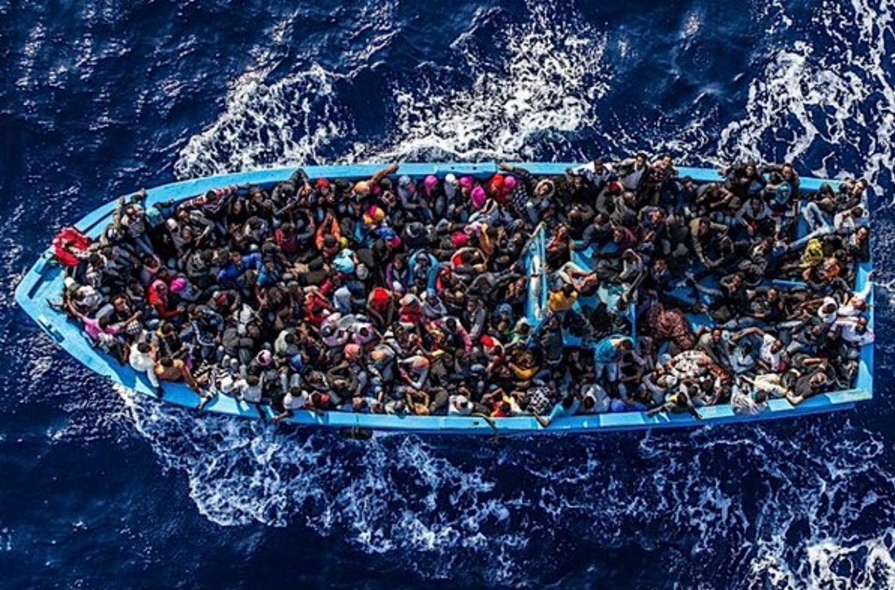
BERLIN – European Union leaders were Friday locked in crunch-time talks with Turkey, offering a detailed package of cash and incentives in a bid to end the continent’s historic migrant crisis.
After hours of wrangling in Brussels, EU leaders reached a common stance overnight on a package of concessions. Under the deal, virtually all migrants – including Syrians fleeing the country’s five-year-old civil war – attempting to cross the Aegean Sea by raft or boat would be sent back to Turkey, which would, in effect, become the region’s migrant holding center. The Europeans pledged to accept a relatively small number of Syrians – but no other nationalities – after legal processing in Turkey.
Early Friday, the Europeans were pitching the offer as the only way to end “the human suffering” of migrants being exploited by smugglers. But human rights groups have cried foul, arguing the plan instead is likely to dramatically boost the suffering of migrants who could now be stranded in Turkey, a country descending into instability and violence and with a dismal track record on human rights.
To reach agreement with the Turks, several sticking points remained. The Turks, for instance, are demanding at least 6 billion euros ($.3.3 billion), but a draft of the European offer simply repeats an early pledge to give half that amount. Visa-free travel for Turkish citizens – a key demand by Ankara – would be granted by the end of June, but only if the Turks meet a series of 72 arduous conditions.
The “negotiations won’t be very easy,” German Chancellor Angela Merkel, who earlier had hashed out the framework of a deal with the Turks, told reporters in Brussels early Friday.
“The EU and Turkey have the same goal, the same objective, to help Syrian refugees especially, and to have a new future in our continent in a bright manner,” Turkish Prime Minister Ahmet Davutoglu said Friday morning before meetings began. “I hope we will achieve our goal to help the refugees and also to deepen EU-Turkey relations.”
As per Turkish demands, the Europeans were dangling out the prospect of broadening talks with Ankara on its bid to become a member of the EU. But Cyprus – the former target of a Turkish invasion, and already an EU member – remained reluctant and was threatening to block a deal if it did not contain concessions on Turkey’s long-contentious attempts to isolate the island nation.
“Turkey has to open its harbors and airports [to Cypriot boats and planes] and normalize its relations with Cyprus,” Cypriot President Nicos Anastasiades told Euronews.
Other European leaders also voiced concerns that Turkey was seeking to leverage the continent’s desperation to put an end to the irregular flows of humanity that saw more than a million migrants arrive from the war-torn Middle East and beyond over the course of the last year.
“An agreement with Turkey cannot be a blank check,” Belgian Prime Minister Charles Michel warned, echoing many colleagues who face complaints that Europe is selling out to anti-immigrant nationalists at home by outsourcing its problems to the Turks.
Donald Tusk, the EU President, was set to open talks in Brussels with Turkish Prime Minister Ahmet Davutoglu Friday morning Brussels time. The talks were set to accelerate later in the day, with a working lunch including all 28 EU leaders.
Late Thursday, Davutoglu signaled a tough bargaining stance. “We will not accept any proposal which will turn Turkey into an open migrant prison,” he told reporters in Ankara before his flight to Brussels, according to Reuters. “Everyone must know that.”
And yet, the deal was also seen as a possible boon to Turkish President Recep Tayyip Erdogan, who finds the Europeans courting him with a windfall of cash and incentives just as the authoritarian-style leader is in the midst of a crackdown on press freedoms and Kurdish dissidents at home.
“We hope there will be a good outcome for Turkey, the European Union and migrants,” Davutoglu added.
Human rights groups, however, insisted the deal was anything but a win for migrants – particularly the hundreds of thousands of Syrians, Iraqis and Afghans fleeing war.
“Our objection is to fast-track collective expulsions that fail to take individual circumstances into account,” Human Rights Watch said in a statement Thursday. “The breach of the right to seek asylum is not mitigated by the fiction that Turkey is a ‘safe’ country for refugees.”
Over the year, those asylum seekers, along with economic migrants trying their luck, have raced to clandestine Turkish ports, where smugglers put them in rafts and boats to sail the short trip to the Greek islands – and thus, Europe – through the Aegean Sea. Under the EU plan, Turkey would take back all migrants found at sea.
Returning asylum seekers without a hearing is a violation of EU and international law. But technically, the EU could comply by offering rapid-fire hearings – some supposedly as fast as a few hours – to asylum seekers who make it Greece. But since the European plan is based on the assumption that Turkey will become a “safe” country for refugees, almost all migrants would be expelled back to Turkish shores under the argument that the Turkey will be a benign benefactor.
Turkey does not currently fully honor the Geneva Convention on refugees, making it technically illegal to instate a blanket policy of sending migrants back there. But the Europeans have tried to get around this by saying Turkey should, at a very rapid pace, pass new laws to insure that it offers the full gambit of humanitarian protections.
Both economic migrants and asylum seekers fleeing war would be sent back to Turkey. Europe is pledging to roll out a “one-to-one” deal on Syrians – meaning that for every Syrian returned, another would be brought legally from Turkey into Europe.
Syrians who try to enter the EU via Greece illegally, however, would mostly lose the right to apply for legal resettlement. And the citizens of other nations at war – including Iraq – would have no hope of participating in the program.
There are currently 2.7 million Syrian refugees in Turkey. Initially, Europe would only offer legal slots for up to 72,000. Since the plan is not mandatory, however, European nations would need to volunteer to take the Syrians in. It remains unclear which of the 28 EU nations would be willing to do that.
Franck Duvell, a migration studies professor at the University of Oxford, said there’s good reason why asylum-seekers from Syria and other war zones don’t want to settle in Turkey, including the absence of full-fledged refugee protection.
“Displaced people need to know where they can rebuild their lives.” he said. “The assumption that Turkey is a safe country doesn’t withstand legal scrutiny.”
Beyond the legal hurdles, Duvell said there were also practical considerations. “How is it technically possible to administer the return of tens of thousands of people from Greece to Turkey?” he asked.
And even if a deal is struck, Duvell said he doubted that people would be dissuaded from making the voyage: Many of those now traveling, he said, are the wives and children of men who ventured to Europe last year, and now want to reunify their families.




